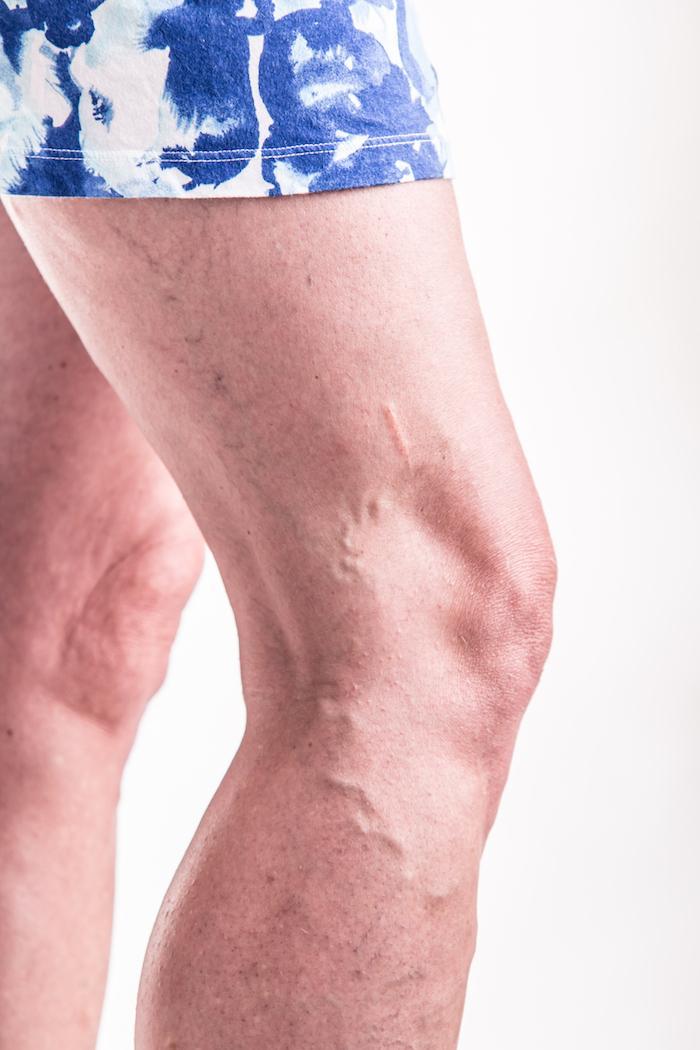Our circulatory system works not only to pump blood out from the heart, but also to the heart. As blood circulates through your system, oxygen and other nutrients are carried throughout the body to keep you going. Without the parts that keep your blood flowing up to the heart, you could face several problems that impact your daily life.
What’s chronic venous insufficiency?
Chronic venous insufficiency starts with veins –– muscular blood vessels whose job it is to fight the power of gravity to send deoxygenated blood flowing back to the heart. Once back to the heart, refreshed blood is pumped out of the aorta, where it travels to the head and everywhere else in the body.
Part of what enables the upflow of blood are valves in the veins. With each flex of the valve, blood is pushed to the heart. Because of a variety of factors, these valves may weaken, or malfunction, preventing blood from being forced forward. This causes the blood to pool within the vein, making the vein bulge.
Common causes of chronic venous insufficiency include previous blood clots, and untreated, problematic varicose veins. Another possible cause is weakness of the muscles in the leg, which work with the vein to send the blood back to the heart. Obesity, pregnancy, and smoking all raise the risk of developing chronic venous insufficiency, compromising your overall health.
What are 5 common signs of chronic venous insufficiency?
One of the most recognizable symptoms of chronic venous insufficiency is the sight of discolored vein at the surface of the skin. Varicose veins can be nothing, or they can be a sign of this condition. Swelling of the legs, pain in the legs, tightness, and aching in the legs are all common symptoms of chronic venous insufficiency.
Varicose veins that are a symptom of chronic venous insufficiency can lead to changes in skin texture, and ulcers that are painful and difficult to treat.
Chronic venous insufficiency occurs in up to 50% of the US population, but is mostly likely to affect people over the age of 50, particularly if they have other risk factors. Cisgender women are more likely to have varicose veins than are cisgender men, and they’re also more likely to experience chronic venous insufficiency.
What do I do about chronic vein insufficiency?
We always recommend that you contact your provider at Prime Heart and Vascular to understand the best way to take care of your venous system. However, Dr. Shah and Dr. Mangalpally do recommend a few steps to protect yourself from this condition:
- Eat a balanced diet.
- Get at least 30 minutes of appropriate cardiovascular exercise on most days.
- Reduce your alcohol intake.
- If you smoke, quit.
- Talk to your doctor about stress management.
- Make sure to drink plenty of water, and get at least seven hours of sleep per night.
- Take all medication directed by your provider.
Taking these simple steps will reduce your risk of developing most chronic conditions and could spare you the pain and discomfort of chronic venous insufficiency. If you begin to notice any symptoms, we’re here to assist you with treatment and guidance. Before we recommend any treatment, your provider sits with you for a full consultation.
Chronic venous insufficiency can make living a full life difficult, and you deserve to enjoy your days. To optimize the health of your veins, please contact us at 972-295-7017, or book an appointment with us online.



